Who We Are
Geospatial data and analysis is critical for conservation, from planning to implementation and measuring success. Every day, mapping and spatial analysis are aiding conservation decisions, protected areas designation, habitat management on reserves and monitoring of wildlife populations, to name but a few examples. The Geospatial group focuses on all aspects of this field, from field surveys to remote sensing and data development/analysis to GIS systems.
How to Get Started
Want to learn more about how remote sensing is used in conservation? Check out the first two episodes of this season of Tech Tutors, where our Tutors answer the questions How do I use open source remote sensing data to monitor fishing? and How do I access and visualise open source remote sensing data in Google Earth Engine? You can also check out our Virtual Meetup Archive for a range of panels that overlap with Geospatial topics, or take a look at our Earth Observation 101 lecture series from Dr. Cristian Rossi.
Our Purpose
The WILDLABS Geospatial Group is for conservation practitioners, geospatial analysts, and academics that want to:
- Share geospatial resources, best practices, data, and ideas;
- Network amongst geospatial and data practitioners;
- Create peer learning opportunities;
- Promote the use of free and open-source geospatial software; and
- Improve the use of GIS software and geospatial analyses in conservation management and research.
Group curators
3point.xyz
Over 35 years of experience in biodiversity conservation worldwide, largely focused on forests, rewilding and conservation technology. I run my own business assisting nonprofits and agencies in the conservation community

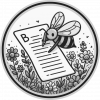

- 7 Resources
- 69 Discussions
- 12 Groups
- @ahmedjunaid
- | He/His
Zoologist, Ecologist, Herpetologist, Conservation Biologist





- 75 Resources
- 7 Discussions
- 25 Groups
Fauna & Flora
Remote Sensing Scientist, Conservation Technology & Nature Markets @ Fauna & Flora - WILDLABS Geospatial Group Co-Lead



- 42 Resources
- 49 Discussions
- 9 Groups
No showcases have been added to this group yet.
- @LeanneTough
- | She/Her
GIS Specialist working for WWT, the charity for wetlands and wildlife
- 0 Resources
- 1 Discussions
- 2 Groups
- @jennamkline
- | She/Her
Imageomics Institute & ABC Global Climate Center
PhD Student @ OSU, Edge AI for Adaptive Animal Ecology Field Studies


- 0 Resources
- 7 Discussions
- 7 Groups
- @rhys
- | He/Him
Imperial College London & CEH

- 0 Resources
- 0 Discussions
- 17 Groups
- @Javan_INITIAM
- | He/Him/His
INITIAM - Initiative Technologique Intelligente Améliorée / Enhanced Smart Technology Initiative & World Wide Fund for Nature/ World Wildlife Fund (WWF)
Javan BUTIRA is a young Congolese leader committed to technological innovation, sustainable development, and social entrepreneurship. As the Principal Coordinator and Executive Director of INITIAM (Enhanced Intelligent Technological Initiative), I lead several innov projects.

- 1 Resources
- 5 Discussions
- 28 Groups
- @cpagniel
- | Dr/she/her/elle
Dr. Camille Pagniello leads the Marine Innovation Lab for Leading-edge Oceanography (MILLO) in the Department of Ocean and Resources Engineering at the School of Ocean and Earth Science and Technology (SOEST), University of Hawaiʻi at Mānoa.
- 2 Resources
- 0 Discussions
- 13 Groups
WILDLABS & Wildlife Conservation Society (WCS)
I'm the Bioacoustics Research Analyst at WILDLABS. I'm a marine biologist with particular interest in the acoustics behavior of cetaceans. I'm also a backend web developer, hoping to use technology to improve wildlife conservation efforts.





- 41 Resources
- 38 Discussions
- 34 Groups
Octophin Digital
Director at Octophin, building software for wildlife conservation. Including WILDLABS.



- 2 Resources
- 25 Discussions
- 3 Groups
- @HeinrichS
- | he/him
Conservation tech geek, custodian (some say owner) and passionate protector of African wildlife, business systems analyst.





- 0 Resources
- 29 Discussions
- 6 Groups
Worked as a mechanical engineer for a defence co, then software engineer, then for a research lab specialising in underwater robotics.
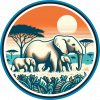
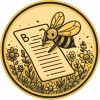

- 1 Resources
- 144 Discussions
- 16 Groups
Ocean Science Analytics
Marine mammal ecologist and online technical trainer



- 1 Resources
- 41 Discussions
- 11 Groups
- @TaliaSpeaker
- | She/her
WILDLABS & World Wide Fund for Nature/ World Wildlife Fund (WWF)
I'm the Executive Manager of WILDLABS at WWF

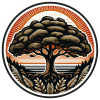

- 23 Resources
- 64 Discussions
- 32 Groups
- @fsanger
- | she / her/ ella
I specialize in conservation geography, using GIS, remote sensing, acoustics, and landscape ecology to study climate and land cover change impacts on biodiversity and ecosytems. I'm a professor at Clark University, and member of the XPRIZE Rainforest winning team ETH BiodivX.
- 0 Resources
- 5 Discussions
- 7 Groups
Emerging trends for Nature-Based Solutions project assessments
8 March 2024
Join us to help prevent biodiversity loss! Understory is hiring a postdoc to lead R&D Development on generalizing Computer Vision models for vegetation identification across space/time/phenotypes.
29 February 2024
Is there really a sustainability data deficiency? We don’t think so.
29 February 2024
Join the Luxembourg Institute of Science and Technology (LIST) in pioneering environmental and ecological monitoring! 🌍💡 As part of ERIN’s Observatory for Climate, Environment, and Biodiversity (OCEB), you'll be at the...
26 February 2024
How Earth Blox reduced biodiversity impact analysis from 2 months to 1 hour for a global bank.
20 February 2024
The primary focus of the research is to explore how red deer movements, space use, habitat selection and foraging behaviour change during the wolf recolonization process.
10 February 2024
The Wildlife Restoration Foundation is hiring a Conservation Technology Intern
8 February 2024
New position available in Esri’s Nonprofit account team.
8 February 2024
Using geospatial data and the TNFD L.E.A.P approach to assess nature-related risks, impacts and opportunities in supply chains.
4 January 2024
Article
Read our interview with Clementine Uwamahoro, African Parks’ Country Manager in Conservation Technology overlooking technology operations for both Akagera National Park and Nyungwe National Park.
29 November 2023
TagRanger® is a state-of-the-art wildlife finding, monitoring and tracking solution for research, conservation and environmental professionals. With superior configurability for logging data, reporting location and...
23 November 2023
A secure platform designed for those working to monitor & protect natural resources. Insight facilitates sharing experience, knowledge & tools to increase efficiency & effectiveness in conservation. By...
7 November 2023
NASA ARSET Fundamentals of Remote Sensing
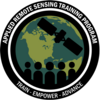

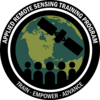

NASA ARSET Fundamentals of Remote Sensing
NASA ARSET Fundamentals of Remote Sensing


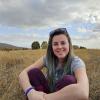

Drone Photogrammetry & GIS Intermediate Course


Drone Photogrammetry & GIS Intermediate Course
Drone Photogrammetry & GIS Intermediate Course
Drone Photogrammetry & GIS Advanced Course


Drone Photogrammetry & GIS Advanced Course
Drone Photogrammetry & GIS Advanced Course
Drone Photogrammetry & GIS Introduction (Foundation) Course


Drone Photogrammetry & GIS Introduction (Foundation) Course
Drone Photogrammetry & GIS Introduction (Foundation) Course




GIS E-learning Course 1: What is GIS and why should you care?

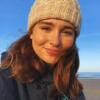


GIS E-learning Course 1: What is GIS and why should you care?
GIS E-learning Course 1: What is GIS and why should you care?










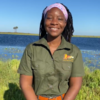
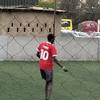







GIS E-learning Course 2: Introduction to QGIS




GIS E-learning Course 2: Introduction to QGIS
GIS E-learning Course 2: Introduction to QGIS







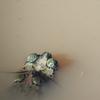





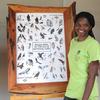

GIS E-learning Course 4: Becoming Confident in Spatial Analysis & Geoprocessing




GIS E-learning Course 4: Becoming Confident in Spatial Analysis & Geoprocessing
GIS E-learning Course 4: Becoming Confident in Spatial Analysis & Geoprocessing









GIS E-learning Course 3: Introduction to ArcGIS Pro




GIS E-learning Course 3: Introduction to ArcGIS Pro
GIS E-learning Course 3: Introduction to ArcGIS Pro



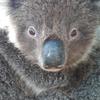
September 2025
October 2025
event
November 2025
event
event
March 2026
July 2025
June 2025
event
event
131 Products
Recently updated products
| Description | Activity | Replies | Groups | Updated |
|---|---|---|---|---|
| I’m over in New York City for Geo for Good this week and wondered if anyone else in the community is there? Would be lovely to say hi if so. |
|
Geospatial | 2 days 19 hours ago | |
| Very interesting. Thanks for sharing |
|
Geospatial, Conservation Tech Training and Education, Early Career, Earth Observation 101 Community | 1 week ago | |
| We're going to try it for a NatCap assessment this year, but no previous experience with it. |
|
Geospatial, Software Development, Climate Change, Funding and Finance, Marine Conservation, Open Source Solutions | 1 week ago | |
| want to join 2025 contest for humpback whale photos in Juneo Alaska of Kelp |
|
Citizen Science, Conservation Tech Training and Education, Drones, Emerging Tech, Geospatial, Human-Wildlife Coexistence, Marine Conservation, Open Source Solutions | 1 week 6 days ago | |
| This is awesome!! |
|
Conservation Tech Training and Education, Drones, Emerging Tech, Geospatial, Open Source Solutions | 2 weeks ago | |
| Would be interested to learn more! What data, software and tools are you using to build your models? |
|
Climate Change, Geospatial | 3 weeks ago | |
| Hi Olivier! I'm Alex from the WILDLABS community team. Thank you for sharing EcoTeka! I made a page for it on The Inventory, our wiki-style database of conservation technology... |
|
Geospatial | 3 weeks 2 days ago | |
| Wow this is amazing! This is how we integrate Biology and Information Technology. |
|
Camera Traps, AI for Conservation, Build Your Own Data Logger Community, Data Management & Mobilisation, Marine Conservation, Protected Area Management Tools, Geospatial | 4 weeks 2 days ago | |
| Good question. Not sure everyone recommends ArcGIS anymore, but it is commonly used as a desktop GIS. However, it's not free. QGIS, R, and various Python packages are free. But... |
|
Citizen Science, Geospatial, Human-Wildlife Coexistence | 4 weeks 2 days ago | |
| Very interesting! Thanks for posting this. I found the NASA ARSET Tutorial quite useful for an overview on PACE before delving into the data. Highly recommend it if you're new to... |
|
Geospatial, Latin America Community | 1 month ago | |
| Wow great effort everyone! We wouldn't have been able to have such a successful group without all our members and our wonderful speakers @LeanneTough , Dr Kuria Thiongo, @... |
|
Geospatial | 1 month ago | |
| 15 years ago I had to rebuild the dams on a game reserve I was managing due to flood damage and neglect. How I wished there was an easier,... |
|
Drones, Conservation Tech Training and Education, Data Management & Mobilisation, Emerging Tech, Geospatial, Open Source Solutions | 4 months 1 week ago |
Anyone at Geo for Good NYC?
25 August 2025 12:06am
FOSS4G NA 2025
22 August 2025 2:18pm
Resource Conservation Technician
21 August 2025 7:46pm
Wildland Restoration Tech
21 August 2025 7:40pm
Online Ocean-Focused GIS Course
8 August 2025 2:53pm
Anyone using InVEST?
10 July 2025 1:31pm
7 August 2025 7:40pm
Elsa,
We have been working with InVEST for a number of years. We have found them helpful for conservation and scenario planning. Happy to share as helpful.
John
8 August 2025 2:23pm
Hi Elsa,
We have used InVEST for a pollinator project we supported (the crop pollination model - details here), and looking to using it more for marine and coastal applications so really appreciate the details you shared here!
Cheers,
Liz
20 August 2025 1:27am
We're going to try it for a NatCap assessment this year, but no previous experience with it.
QGIS Intro Course
18 August 2025 8:36am
Updates on Mole-Rat Mystery Drone Project
10 June 2025 10:21am
10 June 2025 6:04pm
Such a great case study!!
12 June 2025 11:33am
Thank you Elsa :)
14 August 2025 6:07am
want to join 2025 contest for humpback whale photos in Juneo Alaska of Kelp
WOOHOO ITS WORKING!! Tech finds undetected decades old Alien Invasive Parent Plants in indigenous forest!
24 July 2025 12:21pm
13 August 2025 2:06pm
This is awesome!!
AI for Conservation Office Hours: 2025 Review
 Jake Burton
and 1 more
Jake Burton
and 1 more
6 August 2025 2:16pm
The RCoE Geoportal
5 August 2025 9:33pm
Trase and ClientEarth provide guidance on using geospatial data to enforce and comply with the EUDR
5 August 2025 9:07pm
Global Forest maps for year 2020 in support to EUDR
5 August 2025 9:02pm
GIS and AI on deforestation and Climate Change
29 July 2025 3:10pm
29 July 2025 4:02pm
Hi Sebastine! Thanks for sharing this. What are you looking for from the WILDLABS community? (Collaborators, advice, networking, etc.)
5 August 2025 7:30pm
Would be interested to learn more! What data, software and tools are you using to build your models?
Remote Sensing for Forest Monitoring Event
5 August 2025 4:35pm
5 August 2025 7:00pm
3D Maps for conservation
1 August 2025 2:42pm
4 August 2025 6:17pm
Hi Olivier! I'm Alex from the WILDLABS community team. Thank you for sharing EcoTeka! I made a page for it on The Inventory, our wiki-style database of conservation technology tools, R&D projects, and organizations. The Inventory is an essential resource for people in the community to learn about what tools are available for their work.
As an owner of Ecoteka, I encourage you to edit this page to make it as accurate as possible! You can also become a "key contact" for EcoTeka so the WILDLABS community knows who to contact with any questions! To learn more about how to edit a page and become a key contact, read our user guide here. Reach out to myself or @JakeBurton for any troubleshooting needs!
GeoCroissant Survey
28 July 2025 5:16pm
Jupyter Notebook: Aquatic Computer Vision
25 January 2024 5:50am
27 January 2024 4:07am
This definitely seems like the community to do it. I was looking at the thread about wolf detection and it seems like people here are no strangers to image classification. A little overwhelming to be quite honest 😂
While it would be incredible to have a powerful model that was capable of auto-classifying everything right away and storing all the detected creatures & correlated sensor data straight into a database - I wonder if in remote cases where power (and therefore cpu bandwidth), data storage, and network connectivity is at a premium if it would be more valuable to just be able to highlight moments of interest for lab analysis later? OR if you do you have cellular connection, you could download just those moments of interest and not hours and hours of footage?
27 January 2024 6:11am
Am working on similar AI challenge at the moment. Hoping to translate my workflow to wolves in future if needed.
We all are little overstretched but it there is no pressing deadlines, it should be possible to explore building efficient model for object detection and looking at suitable hardware for running these model on the edge.
28 July 2025 1:20pm
Wow this is amazing! This is how we integrate Biology and Information Technology.
July Geospatial Café Q&A
25 July 2025 5:53pm
25 July 2025 5:57pm
- I have question. As Dr Muhammad Rais mentioned ArcGis and QGIS for spatial analysis, map creating etc. If we can also done these analysis with python such as spatial analysis etc and sp, sf function in R for spatial analysis. So why everyone recommend ArcGis. And 2nd question about map of life. Can we download data from that for spatial analysis or habitat modeling.
25 July 2025 5:58pm
- Lovely to hear your work curating the Map of life @eliseb227. When uploading shapefiles, is it accurate to create a list of exhaustive species identified within a landscape which could see incidents of conflict. can we include community knowledge in this list?
28 July 2025 7:43am
Good question. Not sure everyone recommends ArcGIS anymore, but it is commonly used as a desktop GIS. However, it's not free. QGIS, R, and various Python packages are free. But you just need to know how to code to use them. In fact, using R and Python is often cleaner, faster, and puts you in touch with the data and how it's analyzed, much better than the 'clicky clicky' used in desktop packages. Most will use both desktop and code in the workflows. Among others, please see geemap.org, leafmap.org, and FOS geospatial tools for resources to get started and for a deeper dive. Additionally, please see the articles and discussions in this group.
PACE LAND DATA AND USER GROUP
8 July 2025 11:06am
8 July 2025 11:28am
The Jupyter notebook on projecting and formatting PACE OCI data is also available here!
21 July 2025 1:42pm
Very interesting! Thanks for posting this. I found the NASA ARSET Tutorial quite useful for an overview on PACE before delving into the data. Highly recommend it if you're new to hyperspectral and the PACE mission!
Geospatial Group Reflections 2024-2025
18 July 2025 2:53pm
21 July 2025 1:15pm
Wow great effort everyone! We wouldn't have been able to have such a successful group without all our members and our wonderful speakers @LeanneTough , Dr Kuria Thiongo, @idioguardi98 , @mayanisasi , Dr. Alice Catherine Hughes, Dr. Muhammad Rais, @eliseb227! Thanks for sharing your knowledge :)
Of course, special thanks to @VAR1 and @ahmedjunaid for being great co-leads for the past year! And to @alexrood for running the Group Leadership Programme! I am excited for what's ahead in the Geospatial group!
I would also love to hear any feedback :) and if you have found that any of our discussions & contributions have helped you with your work or simply inspired you let us know.
NASA ARSET Fundamentals of Remote Sensing
 Suzanne Monthie
and 3 more
Suzanne Monthie
and 3 more
17 July 2025 10:15pm
G-DiNC 2026: Global Drones in Nature Conservation Symposium & Expo
16 July 2025 10:18am
Water Quality Remote Sensing Lead
10 July 2025 7:40pm
Assistant Project Manager - Ecological Restoration
10 July 2025 7:30pm


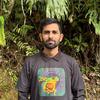
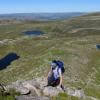
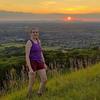








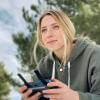
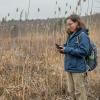



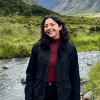
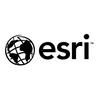










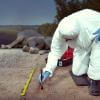












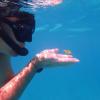

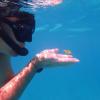


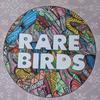

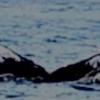




20 August 2025 4:09pm
Very interesting. Thanks for sharing